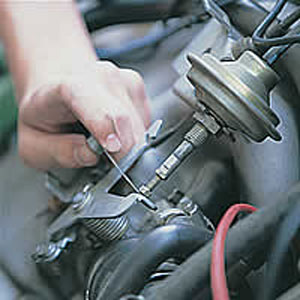Automotive Engineer
Tasks & duties

Automotive engineers may do some or all of the following:
-
discuss faults with customers
-
test drive vehicles to diagnose faults
-
inspect vehicles for faults
-
diagnose what is causing any faults
-
dismantle engines or other parts and systems requiring attention
-
order replacement parts
-
rebuild, repair or replace any faulty parts or systems
-
service vehicles
-
change vehicle lubricants (such as oil) and coolants (such as radiator water)
-
grease the necessary vehicle parts
-
tune engines so that vehicles run smoothly
-
carry out vehicle Warrant of Fitness or Certificate of Fitness checks
-
carry out performance modifications to vehicles
-
test drive repaired vehicles
Specialisations
With the correct accreditation automotive engineers may:
-
install and certify LPG and CNG fuel systems
-
certify modified vehicles to safety standards
-
certify new and used imported cars entering their first service
-
specialise in one sector of the automotive repair industry such as wheel alignment, air conditioning, transmissions and exhausts
Skills & knowledge

Automotive engineers need to have:
-
knowledge of motor vehicle engines, parts and systems
-
knowledge of motor vehicle electronic systems
-
knowledge of Ministry of Transport Warrant of Fitness and Certificate of Fitness regulations and safety standards
-
mechanical skills including the ability to diagnose mechanical faults
-
practical skills to use tools and equipment
-
good planning and time management skills
-
analytical and diagnostic skills
-
customer service skills
-
communication skills
-
business skills if self-employed
Entry requirements
To become an automotive engineer you need to complete an apprenticeship and gain a National Certificate in Automotive Engineering. For further information on training contact the New Zealand Motor Industry Training Organisation(MITO).
Automotive engineering apprenticeships are part of the Modern Apprenticeship scheme. Modern Apprenticeships are for people aged 16 to 21 years old. General information on Modern Apprenticeships can be found at the Modern Apprenticeships website.
Secondary education
At least three years of secondary education with a good standard in English and maths is recommended. Other useful subjects include science, and workshop technology.
Students can also take part in a secondary school automotive training programme called Startup, which is run by MITO and provides a pathway for students into the automotive industry. The programme includes both theory and practical components so students can gain NCEA credits as well as practical work experience. For further information contact the New Zealand Motor Industry Training Organisation (MITO).
Tertiary education
It is an advantage to have completed a National Certificate for Entry to Automotive Trades before beginning an automotive engineering apprenticeship.
Training on the job
To work on LPG and CNG fuel systems, and certify modified vehicles, automotive engineers need to complete additional training and be accredited by the Land Transport Safety Authority.
Automotive Engineers can also go on to complete a National Certificate in Motor Industry (Advanced Technical or 'Atech') Level 5 focusing on Automotive Electrical. They can go on to qualify as an Advanced Technician once they gain the National Certificate Level 4. For further information contact the New Zealand Motor Industry Training Organisation (MITO).
Video
Automotive Technician
MITO CityCare Automotive Engineering
From just a job on you tube
Related courses
Automotive Electrics and Electronics
Automotive Engineering
Vehicle Mechanics
For more information, please refer to Career Services.
Sponsors include
Document Actions
